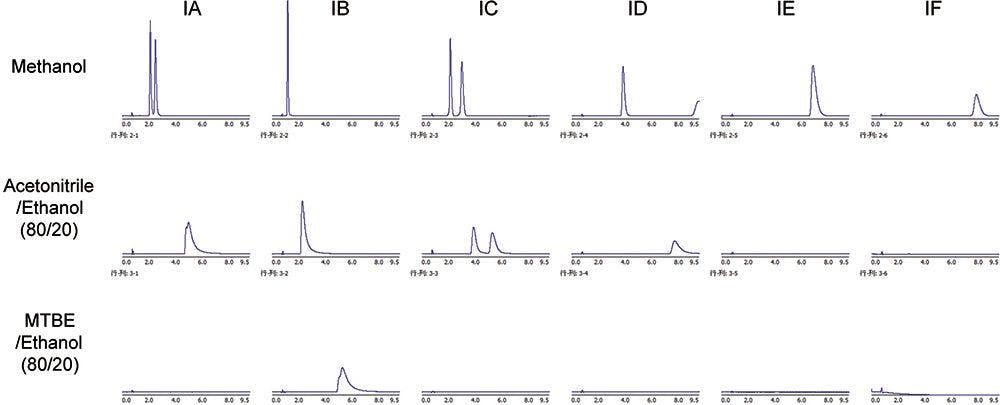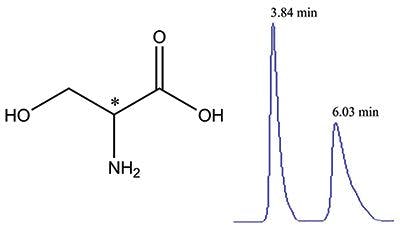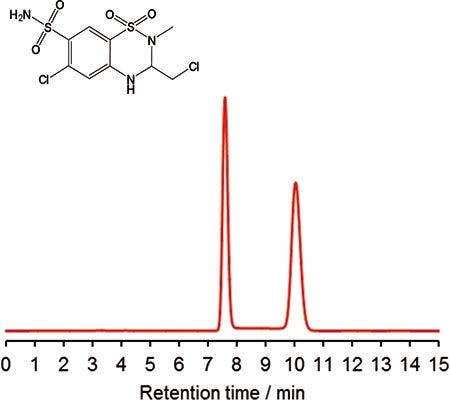Use of 1.9 m YMC-Triart C18 and 2.7 m YMC Meteoric Core C18 BIO Stationary Phases for Fast Peptide Mapping of Monoclonal Antibodies
The Application Notebook
In the quest to increase the speed and efficiency of analytical methods, today's scientists are increasingly turning to innovative products such as UHPLC totally porous as well as superficially porous core-shell materials. Both sub-2-µm totally porous and superficially porous core-shell stationary phases allow for faster analyses and increased throughput while simultaneously providing increased resolution. The advantages are thoroughly evident when applied to peptide mapping runs which are often more than an hour per injection on standard 5 µm and 3 µm size columns. This work highlights improvements in speed, resolution, and solvent consumption offered by YMC-Triart C18 1.9 µm and YMC Meteoric Core C18 BIO 2.7µm stationary phases when used for peptide mapping of monoclonal antibodies.
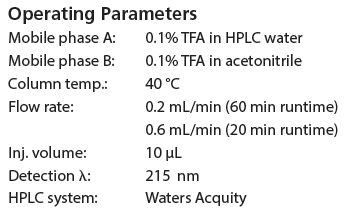
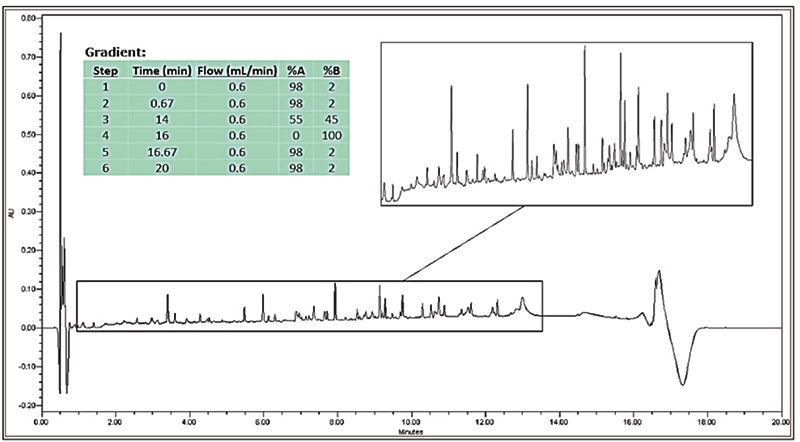
The original application began as a typical peptide mapping analysis run on a 5 µm 250 à 2.0 mm C18 column, using a linear gradient spanning 150 min (data not shown). The method was then transferred to a 1.9 µm 100 à 2.0 mm YMC-Triart C18 column with the gradient scaled accordingly, reducing runtime to 60 min. Linear velocity was then increased 3-fold in order to take advantage of the resolving power of the 1.9 µm particle, resulting in a runtime of 20 min, saving 130 min per injection and decreasing solvent usage from 30 mL down to 12 mL per injection. This procedure was then repeated using the core-shell column, exhibiting similar results.
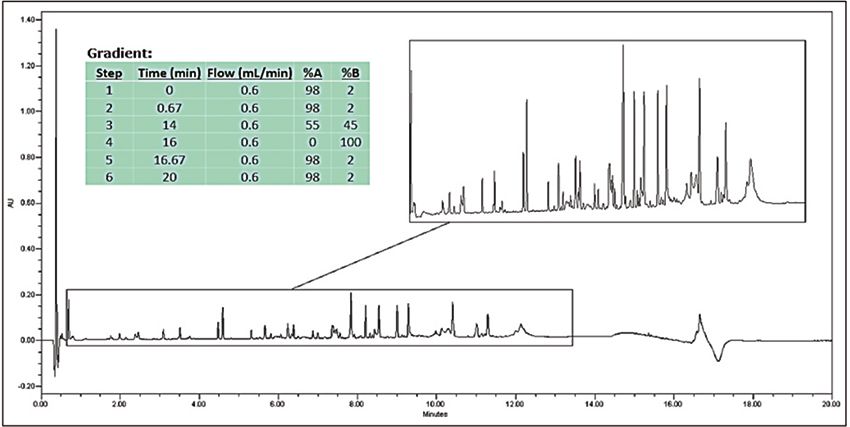
In summary, the results indicate that YMC-Triart C18 1.9 µm and YMC-Meteoric Core C18 BIO 2.7 µm stationary phases are excellent choices for scaling down lengthy peptide mapping runs. These stationary phases allow for faster analyses and increased throughput while simultaneously providing superior resolution.
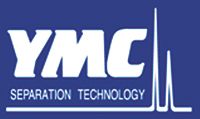
YMC America, Inc.
941 Marcon Blvd., Suite 201, Allentown, PA 18109
tel. (610) 266-8650, fax (610) 266-8652
Website: www.ymcamerica.com


.png&w=3840&q=75)

.png&w=3840&q=75)



.png&w=3840&q=75)



.png&w=3840&q=75)


